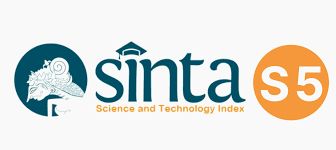Optimization of Banyuwangi Festival Management through ERP-Tourism Using Dashboard
DOI:
https://doi.org/10.25170/metris.v25i02.5424Keywords:
Enterprise Resource Planning, Dashboard, Tourism, Rapid Application Development, Software DevelopmentAbstract
Tourism is an economic sector that has an important role in regional economic growth, including in Banyuwangi Regency. Banyuwangi Festival, as one of the main attractions, faces various challenges in its management, ranging from event coordination to performance monitoring. This research aims to optimize the management of Banyuwangi Festival through the implementation of Enterprise Resource Planning (ERP)-Tourism supported by the use of interactive dashboards. This research utilizes the Rapid Application Development (RAD) method, which involves various stakeholders in the system development process. The research findings show that the implementation of ERP-Tourism and interactive dashboards is able to improve the efficiency, effectiveness, and
quality of festival management. The theoretical implications of this research include the development of literature related to the use of ERP technology in the tourism sector and its contribution to event management. Practically, the results of this study can be used as a guide for festival managers in improving the quality and efficiency of their events. Recommendations for future research include expanding the application of the ERP-Tourism system to other tourism events in Banyuwangi and other regions, as well as further developing dashboard features to meet the specific needs of different types of events. Thus, it is expected that this system can provide wider and sustainable benefits to the tourism sector and regional economy
References
Anoegrajekti, N., Macaryus, S., Iskandar, I., Gomo Attas, S., Sunarti, S., & Saddhono, K. (2021). Optimization Pillars of Potential Culture and Creative Industry in Banyuwangi, East Java, Indonesia. Psychology and Education, 58(3): 2025-2032.
Arifin, N. Y., & Prayogi, A. (2022). Perancangan Dashboard Sistem Informasi File Elektronik Pengarsipan BPKB Direktorat Lalulintas Polda Kepri. JR: Jurnal Responsive Teknik Informatika, 6(01): 61-70.
Aini, N., Wicaksono, S. A., & Arwani, I. (2019). Pembangunan Sistem Informasi Perpustakaan Berbasis Web menggunakan Metode Rapid Application Development (RAD)(Studi pada: SMK Negeri 11 Malang). Jurnal Pengembangan Teknologi Informasi dan Ilmu Komputer, 3(9): 8647-8655.
Bi, J. W., Liu, Y., & Li, H. (2020). Daily tourism volume forecasting for tourist attractions. Annals of Tourism Research, 83: 102923.
Chica, & Perc, M. (2022). Sustainability in tourism determined by an asymmetric game with mobility. Journal of Cleaner Production, 355(March): 131662.
Few, S. (2019). "Dashboard Confusion: Why Users Misunderstand Their Dashboards, and What to Do About It." Business Intelligence
Journal, 24(3): 11-14.
Kişi, N. (2019). A strategic approach to sustainable tourism development using the A’WOT hybrid method: A case study of Zonguldak, Turkey. Sustainability, 11(4): 964.
Leong, J., May Yee, K., Baitsegi, O., Palanisamy, L., & Ramasamy, R. K. (2023). Hybrid project management between traditional software development lifecycle and agile based product development for future sustainability. Sustainability, 15(2): 1121.
Martin, J. (1991). Rapid application development. Macmillan Publishing Co., Inc.
Pambudi, P. S., & Hariandi, M. S. I. (2021, June) ,Routledge. International Tour de Banyuwangi Ijen impacts to local community development in Ijen Crater–Banyuwangi. In Journal of Convention & Event Tourism ,22(3):187-196.
Rahman, A., & Upadhyay, N. (2020). "The Role of Enterprise Resource Planning (ERP) Systems in Tourism Industry: A Literature Review." International Journal of Scientific Research and Management (IJSRM), 8(11): 35-41.
Rahmawati, N. A., & Bachtiar, A. C. (2018). Analisis dan perancangan sistem informasi perpustakaan sekolah berdasarkan kebutuhan
sistem. Berkala Ilmu Perpustakaan dan Informasi, 14(1): 76-86.
Shrestha, S., & Ghimire, S. (2018). "Impact of ERP on Tourism and Hospitality Industry: A Case of Nepal." International Journal of Management Studies and Research (IJMSR), 6(12): 91-98.
Sharda, R., Delen, D., & Turban, E. (2014). Business intelligence and analytics: systems for decision support. Pearson.
Vargas, M. A., & Comuzzi, M. (2020). A multidimensional model of Enterprise Resource Planning critical success factors. Enterprise Information Systems, 14(1): 38-57.
Wong, K. (2019). "ERP Systems in Tourism: A Comprehensive Review." Journal of Tourism, Hospitality and Culinary Arts, 11(3): 1-14.
Zulkarnain, I., & Rumanti, A. A. (2023). Perancangan Sistem Customer Relation Management untuk Mengelola Business Partner Pada Banyuwangi Festival. Jurnal Metris, 24(02): 105-112












